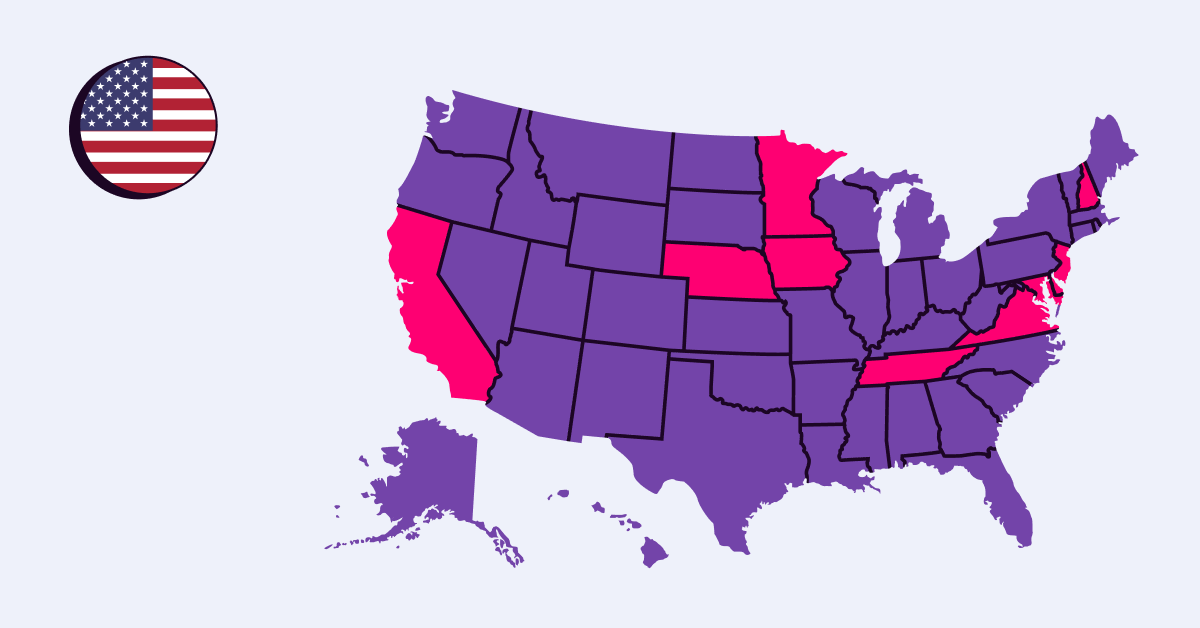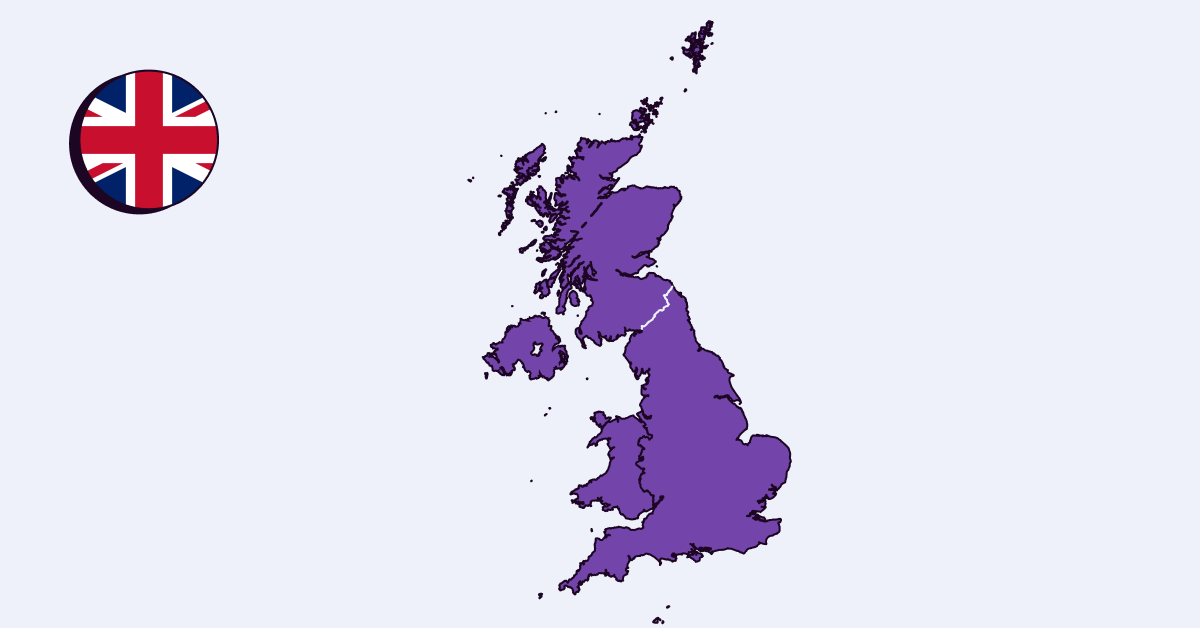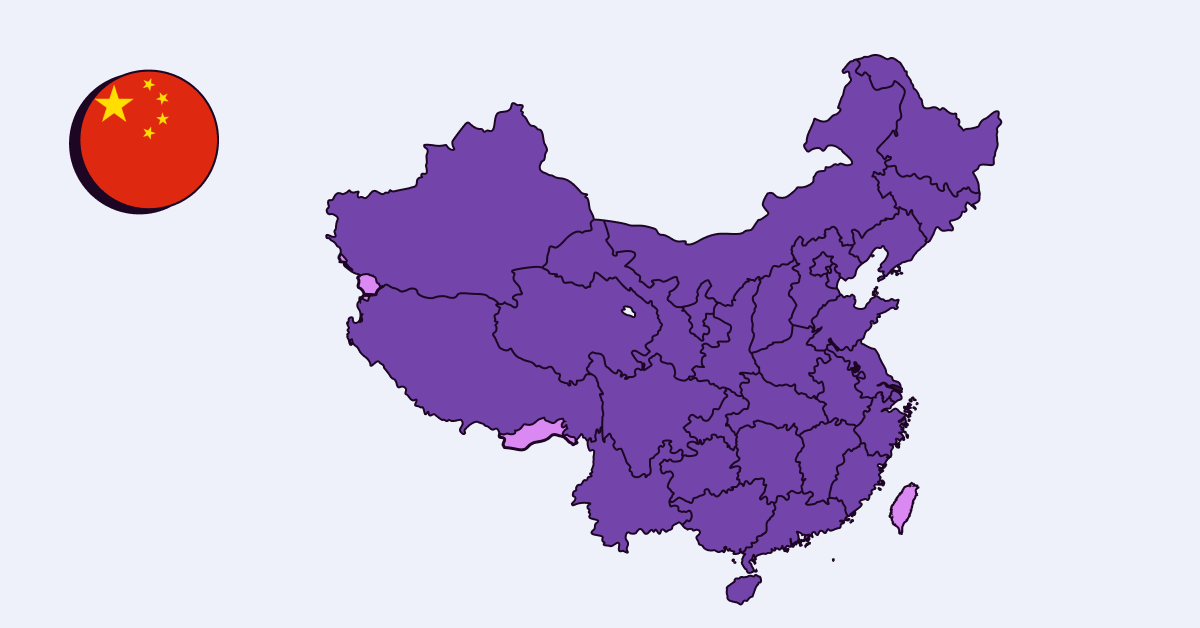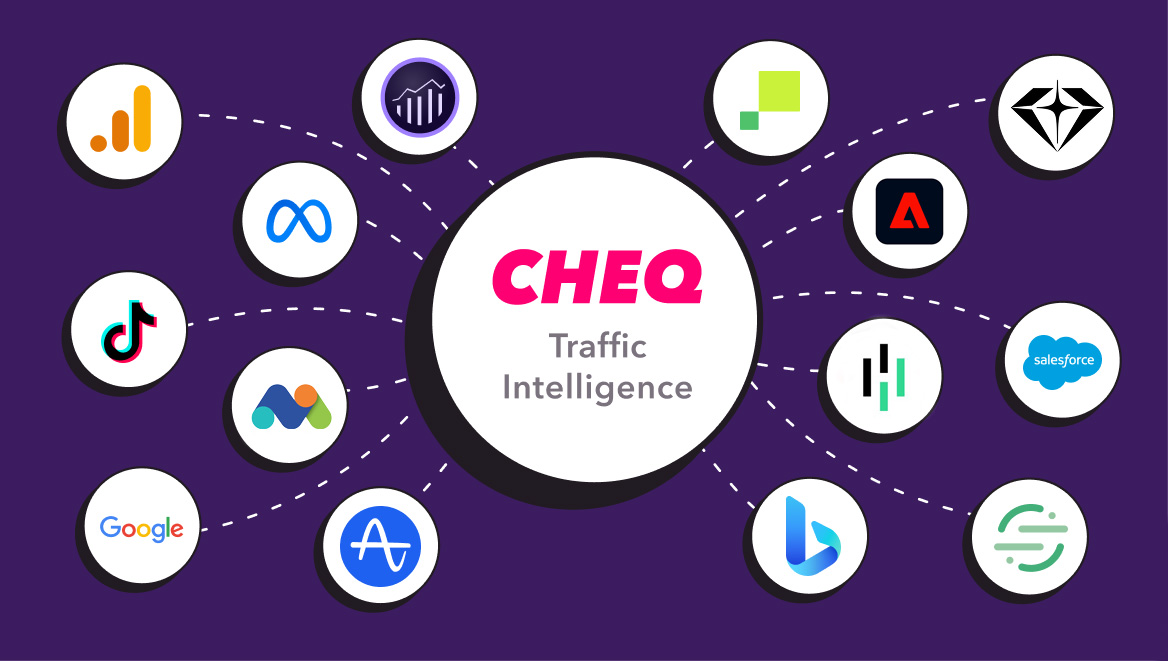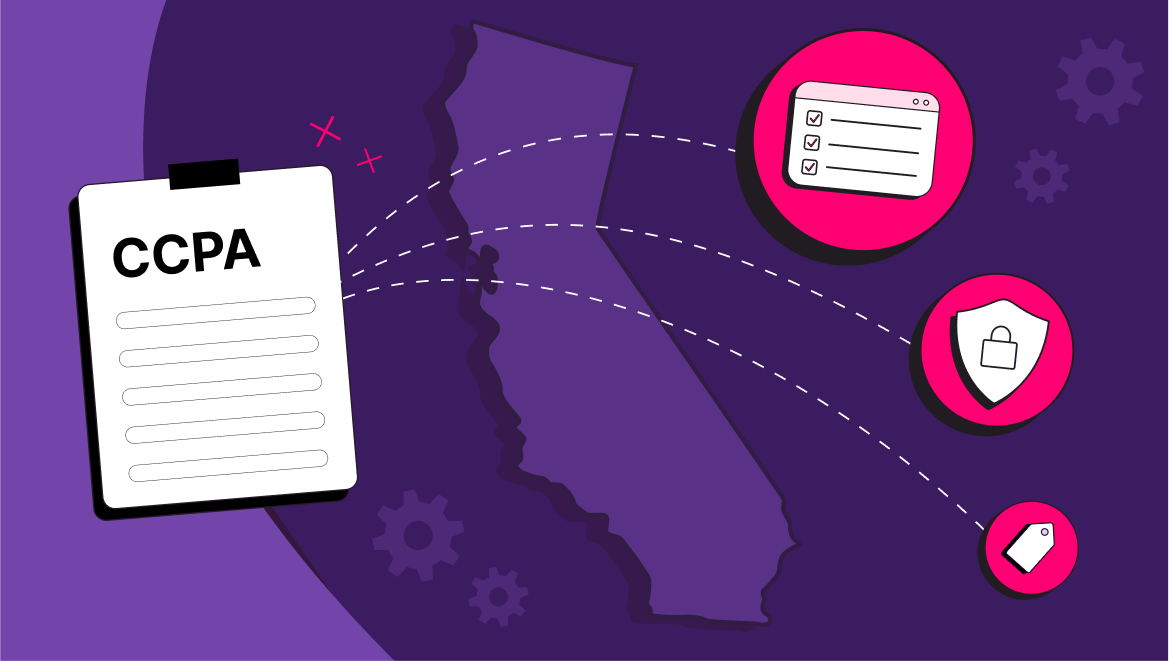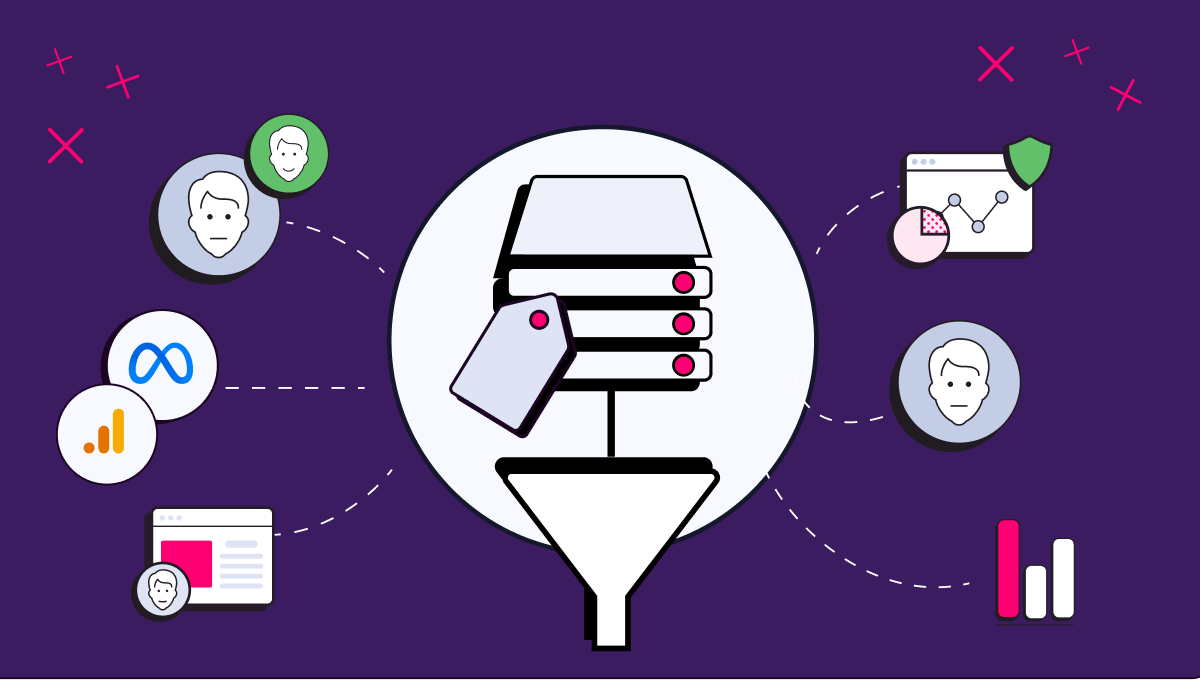The Biggest Privacy Laws Taking Effect in 2025—What You Need to Know
Jamie Vinkle
|Privacy & Compliance | February 11, 2025

The Privacy Evolution of 2025.
This year is set to be a defining year for data privacy and regulatory compliance. With major changes in privacy laws across multiple regions, businesses must prepare for new compliance challenges or risk facing severe penalties. Data privacy has become a global concern, and regulators worldwide are tightening their grip on how companies collect, store, and process personal data.
Governments in the U.S., Europe, China, and many others are enacting new laws or strengthening existing ones to protect consumer rights. At the same time, consumers are becoming more aware of their data privacy, demanding more control over how their information is handled. Organizations must not only comply with new regulations but also build privacy-first business models that establish trust with their customers.
In this blog we will take an in-depth look at the biggest privacy laws coming into effect in 2025, why they are being introduced, how that will impact your business, and steps companies should take to prepare.
Let’s dive into it.
The Major Privacy Laws Coming into Effect in 2025
United States: The Expansion of State Privacy Laws
The US still lacks a major federal data privacy law, and while this may seem unbelievable it makes sense given the autonomy and power each state has over its own lawmaking capabilities. If you do business in more than one state, you need to pay attention to the individual laws within those states and what that means for your bottom line.
Following in the footsteps of the California Consumer Privacy Act (CCPA) and the Virginia Consumer Data Protection Act (VCDPA), more states are rolling out their own privacy laws.
Here is a short list of the many state level privacy laws coming down the funnel in 2025:
Delaware Personal Data Privacy Act (DPDPA)
Effective Date: January 1, 2025
The DPDPA grants Delaware residents rights to access, correct, delete, and obtain copies of their personal data. It mandates businesses to implement reasonable data security measures and limits the collection of personal data to what is necessary for specified purposes.
Iowa Consumer Data Protection Act (ICDPA)
Effective Date: January 1, 2025
The ICDPA provides Iowa residents with rights to access, delete, and opt out of the sale of their personal data. It requires businesses to establish data security practices and prohibits the processing of sensitive data without explicit consent.
Nebraska Data Privacy Act (NDPA)
Effective Date: January 1, 2025
The NDPA offers Nebraska residents rights to access, correct, and delete their personal information. It obliges businesses to implement reasonable data security measures and restricts the collection of personal data to what is necessary for legitimate purposes.
New Hampshire Data Privacy Act (NHDPA)
Effective Date: January 1, 2025
The NHDPA provides New Hampshire residents with rights to access, correct, delete, and obtain copies of their personal data. It mandates businesses to implement reasonable data security measures and limits the collection of personal data to what is necessary for specified purposes.
New Jersey Data Privacy Act (NJDPA)
Effective Date: January 15, 2025
The NJDPA enhances consumer privacy rights by allowing residents to opt out of the sale of their personal data and its use for targeted advertising. It also grants rights to access, correct, and delete personal information held by businesses.
Tennessee Information Protection Act (TIPA)
Effective Date: July 1, 2025
The TIPA provides Tennessee residents with rights to access, correct, delete, and obtain copies of their personal data. It requires businesses to implement reasonable data security measures and limits the collection of personal data to what is necessary for specified purposes.
Minnesota Consumer Data Privacy Act (MCDPA)
Effective Date: July 31, 2025
The MCDPA grants Minnesota residents rights to access, correct, delete, and obtain copies of their personal data. It mandates businesses to implement reasonable data security measures and restricts the collection of personal data to what is necessary for specified purposes.
Maryland Online Data Protection Act (MODPA)
Effective Date: October 1, 2025
The MODPA provides Maryland residents with rights to access, correct, delete, and obtain copies of their personal data. It requires businesses to implement reasonable data security measures and limits the collection of personal data to what is necessary for specified purposes.
For companies operating across multiple states, navigating this patchwork of laws will be increasingly challenging. Businesses will need to adopt a unified privacy strategy that meets the strictest state requirements to ensure compliance across the board.
European Union: Expanding Privacy Laws
The EU set the bar for global privacy laws when the GDPR was introduced in 2018, and they continue to be the gold standard in consumer privacy protection. Here are two more laws coming into play this year.
Digital Operational Resilience Act (DORA)
Effective Date: January 17, 2025
DORA aims to strengthen the IT security of financial entities such as banks, insurance companies, and investment firms within the EU. It establishes uniform requirements for the security of network and information systems to ensure the operational resilience of financial institutions against cyber threats.
Data Act
Effective Date: September 12, 2025
The Data Act seeks to regulate access to and use of data generated in the EU across all economic sectors. It aims to ensure fairness in the digital environment, stimulate a competitive data market, open opportunities for data-driven innovation, and make data more accessible for all.
United Kingdom: Not to be Outdone…
Though Brexit may have seen the departure of the UK from the EU, and the GDPR along with it, they still have the Data Protection Act (DPA) and they are aiming to expand their privacy protections into 2025.
Data (Use and Access) Bill (DUA Bill)
Effective Date: In progress…expected in 2025
The DUA Bill represents the UK government’s effort to reform data protection laws post-Brexit. It aims to enable data-related innovation and efficiencies in the economy while ensuring data protection standards. The Bill proposes changes in areas such as data subject rights and automated decision-making, with a focus on promoting growth and easing compliance for businesses.
Online Safety Act (OSA)
Effective Date: Will take effect in stages throughout 2025
The OSA aims to make online spaces safer for children and adults by requiring online services, including social media platforms and search services, to moderate content, protect children online, and provide tools for users to control the content they receive. The UK’s Office of Communications (Ofcom) has been granted significant enforcement powers under the OSA, including the ability to issue substantial fines for non-compliance.
New China Law Aims to Update Security Regulations
In 2021 China introduced the Personal Information Protection Law (PIPL), which has since been considered one of the strictest privacy laws in the world. And now, in 2025, they are aiming to position themselves as a leader in the privacy and regulations space as they introduce new Network Data Security Management Regulations.
Network Data Security Management Regulations
Effective Date: January 1, 2025
These regulations aim to enhance data security and privacy protections within China, establishing comprehensive compliance requirements for both domestic and international entities. Key provisions include:
- Personal Information Protection: Businesses are required to implement stricter measures to safeguard personal data, ensuring its confidentiality and integrity.
- Cross-Border Data Transfers: The regulations set clear guidelines for transferring data across borders, necessitating security assessments and approvals to prevent unauthorized access.
- Platform Responsibilities: Operators of online platforms must enhance their data security protocols and are held accountable for the data they collect and process.
These are just a few of the many privacy laws coming into play this year. Is your privacy and security program ready to handle it? These laws and regulations will play a vital role in the business community at large.
Why These Privacy Laws Are Being Implemented
Privacy laws don’t emerge out of nowhere. They are a response to growing concerns over data security, consumer trust, and corporate accountability. Several factors have driven these legislative changes:
Escalating Data Breaches
- 40% of data breaches involved data stored across multiple environments. Breached data stored in public clouds incurred the highest average breach cost at USD 5.17 million. (IBM Security Report).
- High-profile breaches (e.g., Marriott, Meta, Google) have resulted in billions of dollars in penalties and class-action lawsuits.
Consumers Demand More Control
- 79% of consumers are concerned about how companies handle their data (Pew Research).
- 94% of consumers won’t buy from a company if their data is not properly protected (Cisco Privacy Benchmark Study).
AI and Automated Decision-Making Concerns
- AI-driven data collection has raised red flags about algorithmic bias, user tracking, and transparency.
- Regulators are responding with new privacy laws restricting AI-based profiling and automated decision-making.
There are seemingly endless reasons why a new privacy law would be enacted. With the emergence of AI in recent years – and no signs of it slowing down – the writing is on the wall for many more privacy laws coming into effect in the near future.
How Businesses Can Stay Ahead of These Privacy Laws
The task of keeping up with all of these laws can seem daunting, and let’s be honest – it is! But where some may view these constant updates as a challenge, successful organizations see them an opportunity to grow a competitive advantage. Here’s how you can bring this competitive edge to your organization.
Implement Privacy Automation Tools
Companies should invest in privacy technology solutions that:
- Automate compliance monitoring to save valuable time.
- Enforce real-time data tracking policies.
- Provide audit logs for regulatory reporting.
Equip Teams to Work Seamlessly with Privacy Stakeholders
Give product teams and privacy stakeholders, like legal and infosec teams, the tools to stay aligned, with as little friction as possible.
Conduct Regular Privacy Audits
Businesses should map out their data collection, storage, and processing activities to identify compliance gaps.
Turning Compliance Into a Competitive Advantage
With new privacy laws coming into effect in 2025, businesses must take proactive steps to ensure compliance. While regulatory changes can seem overwhelming, organizations that prioritize privacy will not only avoid penalties but also gain a competitive edge by building stronger relationships with consumers.
Final Thoughts: The Future of Privacy Compliance
Companies that treat privacy as a business priority rather than a legal burden will thrive in the new regulatory landscape. The key to success lies in proactive compliance, strong data governance, and leveraging technology to streamline processes.
Want to simplify privacy compliance?
Book a demo of CHEQ Enforce today and ensure your business is fully compliant before enforcement actions begin.
